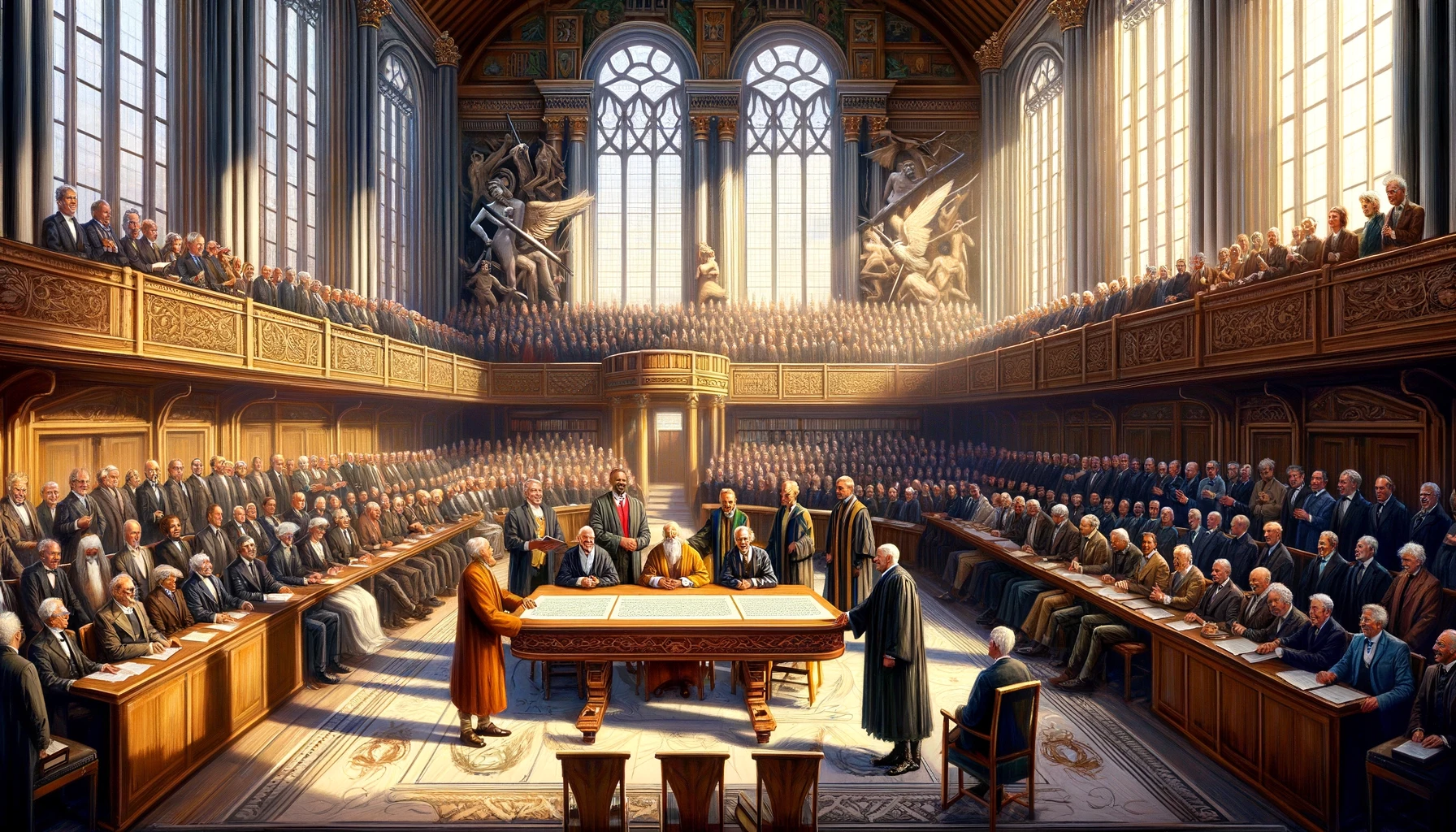In a move that stunned the literary world, a peace treaty officially ending the centuries-long battle between rhyming and free verse poets was signed today on World Poetry Day.
Representatives of both factions gathered, laying down their metaphorical weapons (sharpened iambic pentameters and angst-filled line breaks) to establish a new era of poetic co-existence.
“For too long, we’ve divided ourselves,” declared Rosalind Rhymewell, traditionalist extraordinaire. “Sonnets and free verse are two sides of the same expressive coin.”
Her counterpart, Walt Freeflow Whitman, sporting a beret and an air of tortured genius, agreed. “We must embrace the limitless beauty of language, whether it dances to a rhythm or flows with the raw spirit of the human soul.”
The treaty includes the following historic points:
- Mutual Appreciation: Both sides acknowledge the validity and artistic value of each other’s work.
- No More Judgement: Phrases like “that doesn’t even rhyme!” and “you call those jumbled thoughts poetry?” are officially banned.
- Joint Poetry Slams: Mixed events will feature both rhyming and free verse artists sharing the stage in a spirit of camaraderie.
- Collaborative Experiments: Poets are encouraged to step outside their comfort zones and blend elements of both styles. (Could we see an epic spoken-word sonnet?)
The peace agreement drew widespread praise and an audible sigh of relief from poetry fans tired of the bickering. “Perhaps now I can post a haiku on social media without starting a flame war,” remarked one relieved Twitter user.
This historic shift could pave the way for a more inclusive and vibrant poetry scene. As the treaty’s final line reads, “May our words unite, not divide, and may the only rhythm we follow be that of the human heart.”

